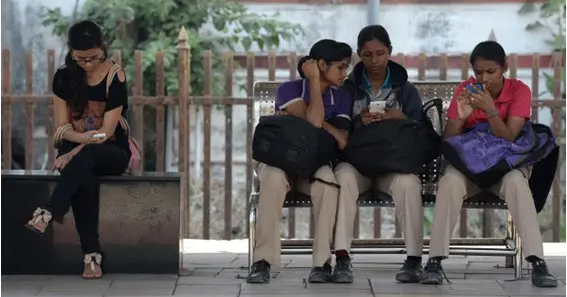What is loitering? Loitering is the act of lingering or standing idly without a clear purpose in public places. In public spaces, loiterers stand or wait idly. Even harmless lingering is often considered negative. This threatens public order and safety. Lingering regulations have altered, although some localities still make them unlawful, especially with questionable persons. In this article we discuss about what is loitering and more about it.
What Is Loitering?
Loitering is the act of lingering or standing idly without a clear purpose in public places. Loitering is a prolonged stay without a purpose. People loiter in parks, streets, and around businesses. Some people may not notice this conduct, while police and the public may be concerned about others. Where and how individuals act might affect how they feel about roaming. If you stay around near a school or company after hours, people may suspect you.
Idling laws were once more widespread, but several have been challenged and thrown out for being confusing or discriminatory. Still, some localities prohibit loitering, especially in high-crime or security zones. The law and societal repercussions of idling need knowledge of the conduct. Lingering affects the law, society, and neighborhood; thus, standing there isn’t enough. Understanding the many aspects of what is loitering will help you grasp its effects and laws. Idling and the law
Also Read N: What Is An Arbitration Agreement? Legal Framework Of Arbitration Agreements
Legal Meaning Of Loitering

Different jurisdictions define “loiter.” differently. Generally, it involves remaining in public without a cause, but specifics vary. Some regulations require you to plot an unlawful act while idling, whereas others do not. Distinct places have distinct loitering laws. Some states have stringent laws with hefty sanctions, while others have relaxed rules or legalized roaming. A wide definition of hanging in New York. Staying there to gamble is one example. Loitering with the intent to prostitute is a more specific offense in California.
Lawyers made useless rules to reduce crime and maintain calm. These restrictions targeted homeless and unemployed people to maintain order. Legal disputes and loitering rule reviews have occurred. The 1960s and 1970s saw several broad and ambiguous laws repealed due to concerns about uneven enforcement and civil rights abuses. Enforcement tactics have evolved. Police may have imprisoned idlers in the past. Today, they may issue warnings or fines.
Also Read P: What Is A Parapet? Significance Of Parapets
Modern Laws Of Loitering
After reading what is loitering, you must know lawyers amended current loitering laws to make them clearer and fairer. They frequently explain waiting and its repercussions. Each city has distinct lingering rules. Chicago’s loitering legislation targets gangs, whereas Los Angeles’s targets prostitutes. Many penalties exist for idling. Some locations may merely give you a warning, while others may fine or imprison you, especially if not related to other offenses.
Contextual Factors
Idling’s acceptance depends on the time of day, where people are, and how they act. People who sit in parks all day may be less popular at night. Behavior is also crucial. Police may pay extra attention to suspicious behavior, like approaching individuals on the street or peeping into stopped automobiles. Different conditions change how people view idling. People may worry about robbery if they hang out near a bank but not near a coffee shop.
Law Enforcement

Police sometimes have some discretion over idling restrictions. They may issue warnings or citations depending on the situation. Police handle idling in several ways. Some target high-crime areas, while others target criminal tendencies. Community police initiatives encourage individuals instead of penalizing them to reduce idling. Police may gain neighborhood trust this way.
Impact On Communities
People who loiter affect neighborhoods differently. It may cause mayhem in some locations and look minor in others. Different towns solve loitering by creating neighborhood watch programs or advocating for greater resources for homeless or mentally ill persons who are merely hanging out. Different neighborhoods handle waiting persons in case studies. A community with a lot of loitering may make it tougher to breach the law, while another may benefit at-risk persons.
Civil Rights Concerns
Loitering regulations may violate civil rights, specifically racial targeting, and minority treatment. The poor and ethnic minorities frequently suffer more from anti-idling laws. This raises concerns about police impartiality. Many courts have questioned standing laws because they’re unclear, broad, or unjustified. These cases safeguard plaintiffs’ civil rights against unfairly enacted legislation.
Court Challenges
If you read above what is loitering, you must know that lawyers sometimes criticize loitering regulations because they are excessively broad or ambiguous, leading to haphazard enforcement and criminalizing legitimate acts. Several landmark court rulings have affected loitering laws. In Papachristou v. City of Jacksonville, the U.S. Supreme Court struck down a vague and arbitrary loitering ordinance. Court challenges have dramatically changed seating rules, making them clearer and less discriminatory. These outcomes demonstrate the courts’ need to monitor human rights.
Conclusion
Lingering is a complex legal, social, and political issue. Laziness in public might make others suspicious and get you in trouble, especially in regions with severe loitering regulations. Loitering regulations and public opinion vary based on the scenario and how they alter. As communities and politicians deal with loitering issues, it’s crucial to apply laws fairly and preserve people’s rights. Understanding how loitering restrictions affect various communities might help keep the peace more fairly and effectively. In above we discuss about what is loitering and explore more about it.
FAQ
What Is Proper Loitering?
Legal loitering is remaining in a public location without a purpose. The restrictions vary by location.
Can Loitering Be Considered A Crime?
Idling can be unlawful in some countries, especially if it gives the impression of illicit activity.
Can You Defend Loitering Charges?
You might argue that the legislation is unclear or that you have a valid cause to be there.
How Do Police Enforce Loitering Laws?
Police may issue warnings, fines, or charges depending on the scenario and parties.
Have Loitering Laws Changed Over Time?
Changing loitering rules due to ambiguity and unfairness.
Sources:
https://en.wikipedia.org/wiki/loitering










